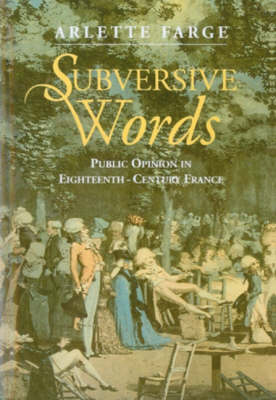In this book, Arlette Farge argues that there was a popular public sphere in 18th-century France. The 18th century was awash with rumour and talk; the words and opinions of ordinary people filled the streets of Paris. Drawing on chronicles, newspapers, memoirs, police reports and newsheets from the time, Farge shows that ordinary Parisians had definite opinions on what was happening in their city - visible, real, everyday events such as executions, price rises and revolts. Yet the political significance of these opinions was denied by a government which preferred to regard them as unsophisticated, impulsive, and inept. Farge argues that, while public opinion continued to be officially excluded from the political field and even denied an existence by those in high places, it became one of the main sources of fear to the monarchy, which tried to keep it under continual surveillance through a system of spies, inspectors and observers. It was amid this curious tension, she argues, that popular rumours arose, and even gained a life of their own.
This book addresses a range of issues, including: the nature of public opinion; the relation between rulers and ruled; and the role of popular rumours. It should be of interest to students and researchers in the social and cultural history of early modern Europe.
- ISBN10 0745611427
- ISBN13 9780745611426
- Publish Date 7 November 1994
- Publish Status Out of Print
- Out of Print 12 February 1999
- Publish Country GB
- Imprint Polity Press
- Format Hardcover
- Pages 250
- Language English
